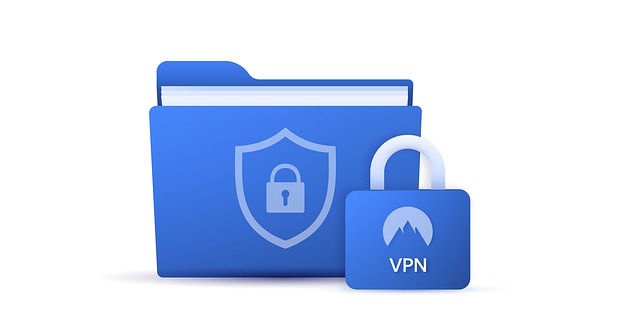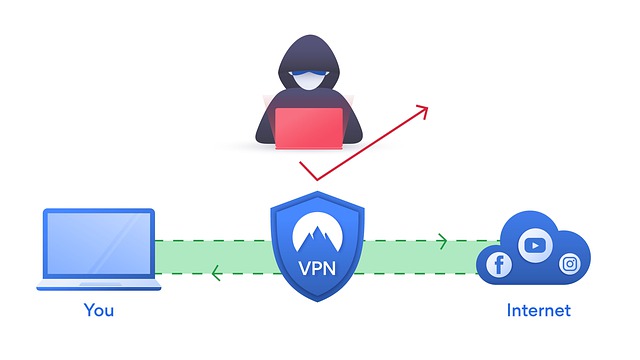Virtual private networks (VPN) come up a lot in conversations relating to online security. Their most-mentioned feature is the ability to create a private connection. It’s a highly sought-after feature in today’s privacy starved society.
But that’s not the only thing that makes this technology great. Read on for a breakdown of the top 5 ways a VPN protects people from all kinds of nasty online threats.
Here’s What a VPN Does
A virtual private network (VPN) is a service run by a company that has servers situated in many different countries. Those who sign up for this service can connect to any of those servers. Every time they go online, their connection goes through the VPN server first and gets encrypted.

The encryption process scrambles connection data. It makes it unreadable to snooping outsiders and hackers. Only you and the website you visit see what you do on the site. No one else does. Not even the VPN provider if you use a reliable one.
Sounds complicated? It’s not. In fact, you only need an application on the computer or smartphone for it to work. Your connection (and data in transfer) stays encrypted until it reaches its final destination.
buy remdesivir online https://alvitacare.com/wp-content/languages/new/where/remdesivir.html no prescription
The same goes for any data sent back.
5 Ways a VPN Helps
People Stay Safe During Online Excursions
1. VPNs Protect from
Hacking Attempts and Data-Theft Attacks
VPN services use different encryption protocols (also called tunneling) to form a protective layer over the connection. This layer prevents outsiders from making sense of the data that you send and receive over that connection.
Encryption methods vary in strength, but the one thing they all have in common is you need a key to decrypt (or unscramble) something.
Without that key, it would either take cyber criminals a long time or enormous resources to decrypt the data. And naturally, this key isn’t public knowledge – not even those using a VPN service can see it.
2. Advertisers, ISPs,
and Government Agencies Can’t Spy Anymore
The ability to make a user relatively anonymous online is a big selling point for most VPN companies. Anonymous, but not wholly untraceable, though. There’s no such thing as true anonymity in today’s world, at least not for the average internet user. But VPNs come pretty close and serve the needs of most people.
So how do VPN services provide anonymity?
buy clomid online https://alvitacare.com/wp-content/languages/new/where/clomid.html no prescription
It has to do with the way they route the connection. Since the first thing the connection does is travel through a VPN server, its IP address gets replaced by the one of the server’s. All those companies and agencies that track people by keeping tabs on their IP addresses now follow the IP address of that server.
If that still doesn’t sound anonymous, keep in mind that this IP could point to a different country entirely. And it’s not only you browsing the web with a mask of that IP address. Everyone using that server does so too. It gives advertisers and other parties no real identity to link to it.
3. They Prevent Data
Theft on Public WiFi Networks
Public WiFi networks have a horrible reputation for being not safe to use. They are open, making them the perfect way in for any unsavory people. Connecting to public WiFi to see what the other connected devices are doing isn’t all that hard either. You can’t even call it hacking per se.
A VPN protects anyone connected to a public WiFi network because it encrypts their connection. So should someone else on the network decide to start spying, then they won’t be able to decrypt anything.
4. Some VPNs Go the
Extra Mile with Security Features
Not every VPN service provides the bare minimum. Some VPNs position themselves as security essentials. They provide their clients with extra features. Things like DNS protection, a kill switch, split tunneling, and protocol options help round out the experience. And they make the service worth the investment.
NordVPN, for example, goes the extra mile with the CyberSec feature. It can protect users from malware, phishing, and similar threats. Their website says, “Cybersecurity may seem very complex, but NordVPN makes it as easy as it gets.” It is another good point as well – having extra security features saves both money and time.
5. VPNs Prevent
Retaliation from Stalkers and Angry Strangers
Some people can be scummy and won’t accept no for an answer. So, they use available tools to stalk others to get what they want. Others, in games, for instance, have even used tracing tools to find out where other gamers live. That is how “swatting” became a thing.
VPNs can also help to prevent such attacks.
They hide your IP address, leaving other people fewer ways to discover your physical location.
Conclusion
Safety comes first. It’s better to be overprotective these days than suffer the consequences of not having any preventative measures at all. So it makes complete sense that more people have started using VPN services. And if you are smart, you will start too.


